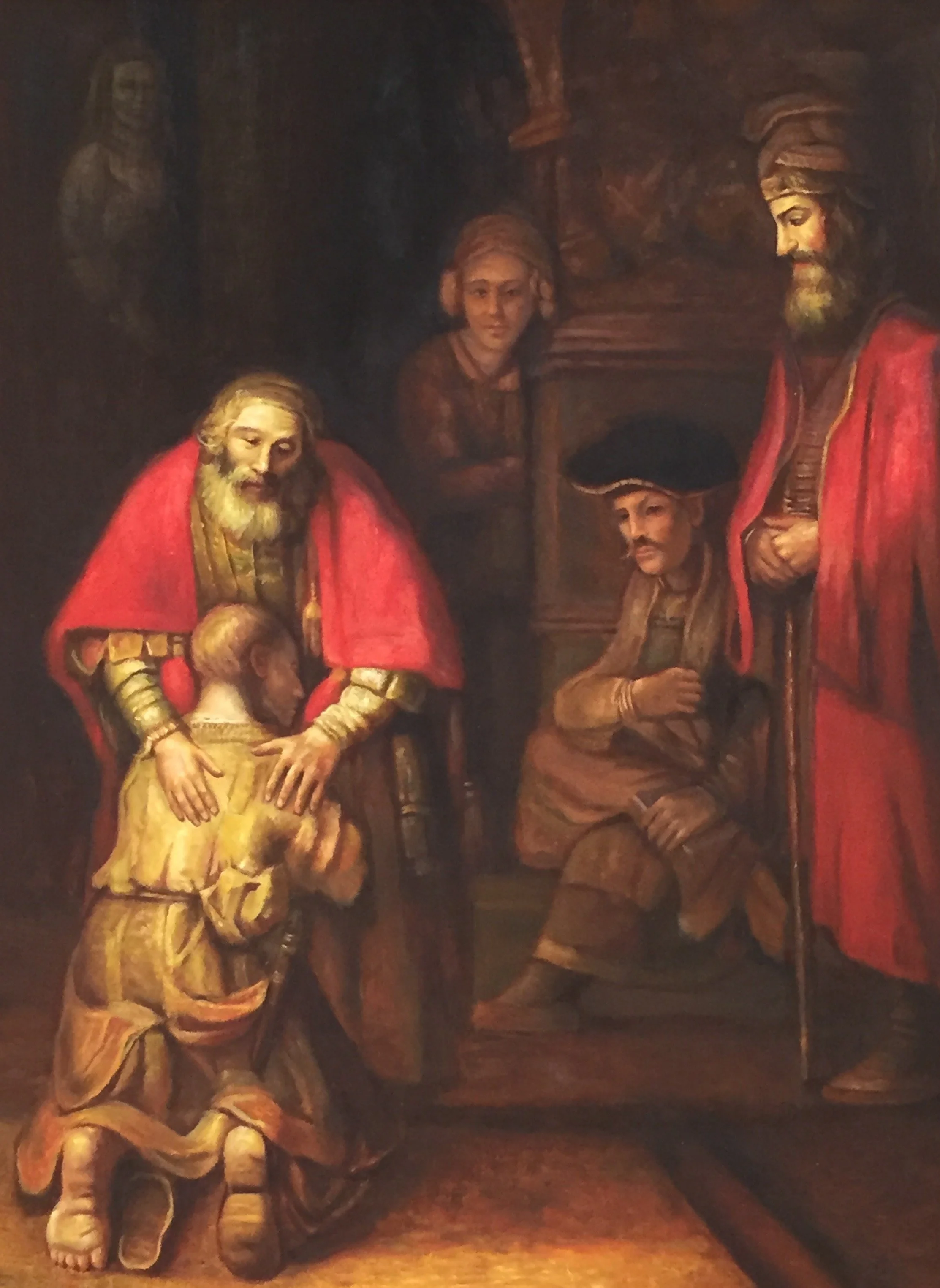On Homecoming
“I’m headed home but I’m not so sure that home is a place you can still get to by train.” —Jon Foreman
Rembrandt’s “Return of the Prodigal Son” (1669)
The concept of homecoming is a strange one. It evokes thoughts of high school football games and the dread of not being asked to a dance — rivaled only by the fear of being asked.
But historically, homecoming had a different association. I used to keep a copy of The Odyssey in my car from a free roadside library to see what it felt like to be smart. I didn’t get far before tiring of the experiment, but it is easy to remember the book’s beginning because it spoke to a latent desire.
The story opens with Odysseus, who has encountered obstacles during his journey home from war. Meanwhile, his wife faces suitors vying for her hand, believing Odysseus to be dead, and his son, who is entering manhood, sets out to find his father.
The greatest epic ever written is, first and foremost, a tale of delayed homecoming. Our fascination with the idea is inherent to being human. It can be repressed but never extinguished. Why are we so captivated by it?
My brother was visiting last week and had a book that hinted at the answer. It describes the author’s encounter with Rembrandt’s "The Return of the Prodigal Son," which is a painting that illustrates the homecoming scene of the younger brother from "The Story of Two Sons and Their Father" in the Gospel of Luke. Here is what author Henri Nouwen says:
But beneath or beyond all that, “coming home” meant, for me, walking step by step toward the One who awaits me with open arms and wants to hold me in an eternal embrace. I knew Rembrandt deeply understood this spiritual homecoming. I knew that, when Rembrandt painted his Prodigal Son, he had lived a life that had left him with no doubt about his true and final home. I felt that, if I could meet Rembrandt right where he had painted father and son, God and humanity, compassion and misery, in one circle of love, I would come to know as much as I ever would about death and life. I also sensed the hope that through Rembrandt’s masterpiece I would one day be able to express what I most wanted to say about love.
Well, I admit, looking at the painting (pictured above) doesn’t bring me anywhere close to this epiphany. Growing up in modern culture is not without consequence.
But the point is that while modern life can do a good job – unfortunately, a great job – of repressing our desire (or at least, awareness of our desire) for homecoming, it can never eliminate it. Comfort is the worthiest spiritual adversary we face, but even comfort is not stronger than the flame in our heart that knows there is something greater, something more.
Who hasn’t had the experience of yearning for something for a long time – a homecoming desire of sorts – only to finally attain it, and realize it doesn’t satisfy?
This used to happen to me frequently. I remember I was desperate to get a job when I was 22 and was certain all my problems would be solved once I did. Eventually, I got one. All my problems were not solved.
The same could be said of countless ‘disappointed homecomings’ of my past. In my worldly homecomings, there is always something missing.
No matter how stable our homes, families, accomplishments, and sense of identity may be, these things remain fallible, and we are wise to remember that we are always sojourners in a foreign land.
That is why the idea of homecoming is inherently engaging to humans. We all long for the embrace of a perfect Heavenly Father who fully knows and accepts us on a personal level. It is why we were created. It is why all of us have déjà vu deep in our hearts for a reunion we haven’t yet experienced. Our worldly homecomings may give us a taste, but they always fall short.
The concept is relevant to healers because our true homecoming is coupled with vibrant, infallible health. True homecoming will restore soul and body. We are told in the Book of Isaiah, another famous story of homecoming, that he will strengthen our frame, that we will be like a well-watered garden whose waters never run dry (58:11).
It’s a beautiful thing. The human heart has been yearning for homecoming since the time of Odysseus in 2,800BC. Recognizing this can lend to a deeper meaning of the pains and trials we face in our lives today, for both ourselves and our patients.
At Columbus Naturopathic Medicine, we provide faith-based care to help you experience God’s design for meaning, purpose, and connection. If you are interested in working with Dr. Leah Gusching, you can learn more and schedule an appointment.
